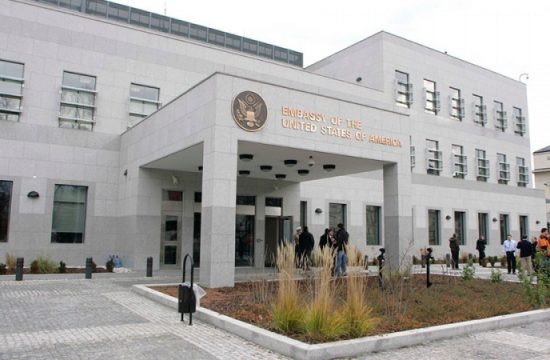Some within the international community and the main Bosniak party in the country continue to work against the 1995 Dayton Peace Agreement which ended the war, while Bosnia’s international administrator is impeding progress toward EU membership, said a report the government of Bosnia’s Serb-majority part sent to the UN Security Council on Wednesday.
The High Representative, Bosnia’s international administrator tasked with overseeing the civilian implementation of the Dayton Agreement, reports to the UN Security Council on the situation in Bosnia twice a year.
However, the political leadership in Republika Srpska (RS), the Serb-majority semi-autonomous entity within the country, is at odds with the High Representative and accuses the official of anti-Serb bias. This is why Republika Srpska sends its own report to the UN Security Council every time the High Representative presents his report.
The RS report highlights the commitment of Republika Srpska to the Dayton Agreement and calls for all parties and the international community to respect Bosnia’s Constitution (Annexe IV of the Dayton Agreement).
“Republika Srpska is convinced that the Dayton formula is a path to success,” the report said, adding that “certain elements” within the international community do not respect the principles or understand the importance of the Dayton Agreement for the future stability and success of Bosnia and “continue to undermine” the state structure set up in the Agreement.
This leads to “unnecessary political tensions and setbacks,” the report said.
It also alleged that the Dayton Agreement is under attack by the strongest Bosniak ethnic party in the country, the Party for Democratic Action (SDA), while “Republika Srpska unreservedly accepts the Dayton Accords” and only demands that Bosnia’s Constitution is implemented the way it is written.
The Report emphasizes Republika Srpska’s commitment to working toward Bosnia’s membership in the European Union.
“Republika Srpska has already achieved significant progress on the required reforms for European integration and continues to work with a commitment to Bosnia joining the EU,” it said.
But the RS Report also criticised the Office of the High Representative – the international official tasked with overseeing the civilian implementation of the Dayton Agreement.
“It is regrettable that Bosnia’s progress toward EU membership is hindered by the presence of the High Representative, who has acquired dictatorial authority, as well as by the blockade of the implementation of the 2018 election results which are conducted by the SDA,” it said, referring to the circumstances which have left the country without a new government for about a year.
The reason why Bosnia has not formed a government – officially called the Council of Ministers – since the October 2018 election is because the Croat and Bosniak members of the tripartite Presidency refuse to vote for the new head of government.
The official is supposed to come from the party of the Bosnian Serb Presidency member which opposes the country’s path toward NATO membership and announced it would not allow the next step in this direction to be made.
The next step is sending the Annual National Programme to NATO, and the Bosniak and Croat Presidency members insist on it.
“Republika Srpska calls on the international community to condemn this disrespect and non-implementation of the results of democratic elections,” it said.
The report also called on citizens and members of the international community “who care about Bosnia’s future” to condemn a declaration on long term goals the SDA adopted in September, which among other things include the establishment of a ‘Republic of Bosnia and Herzegovina’ and the affirmation of a ‘Bosnian language’ as the ‘common identity of all of Bosnia’s citizens’.



